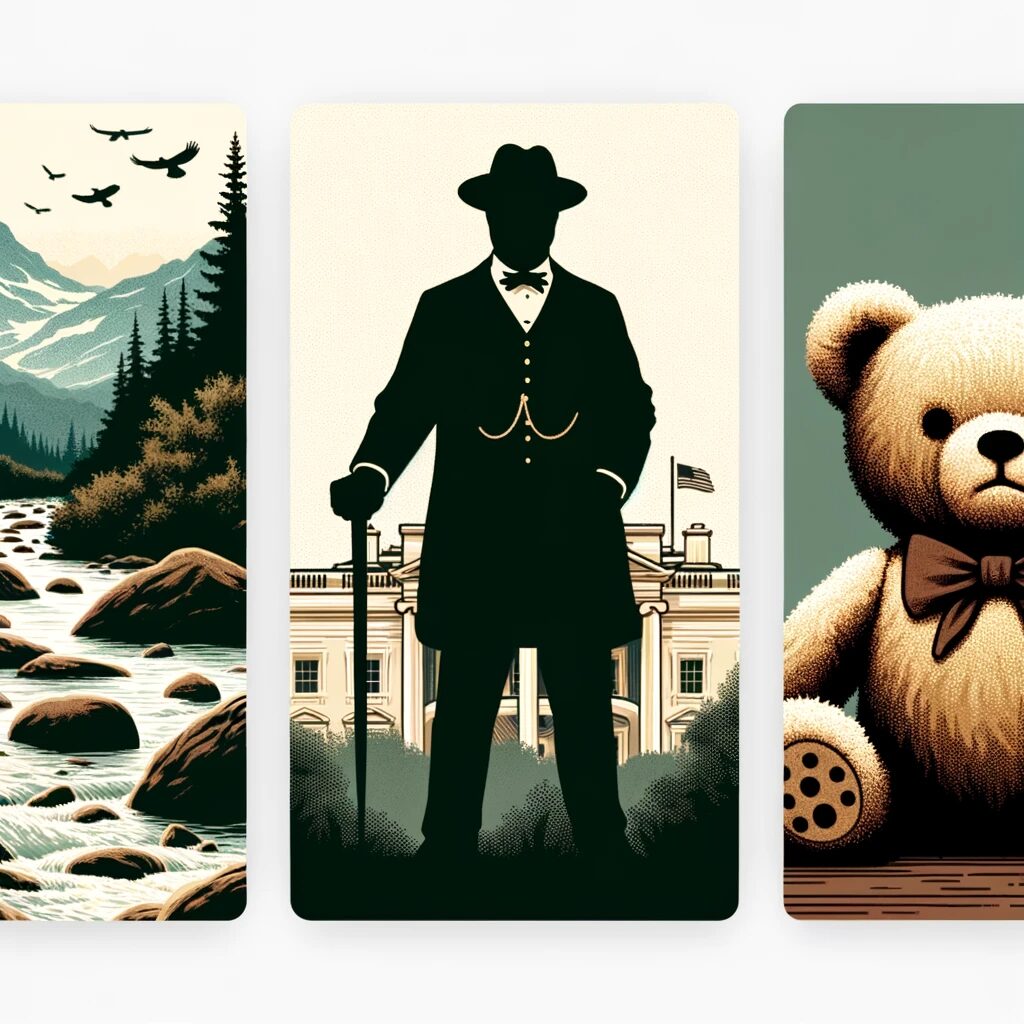Theodore Roosevelt
“If you believe you can do it, you will find a way.”
When you believe in yourself, you are more likely to take actions that will help you to succeed, and you are less likely to give up when faced with challenges or obstacles.
When you believe in yourself, you are already halfway towards achieving your goal because you have the motivation and self-assurance to take the necessary steps.
In other words, believing in yourself is crucial to achieving your goals and can help you overcome obstacles and challenges.
Having faith in yourself and believing you can do something is a big step toward getting it done.
Theodore Roosevelt Brief personal history.
Theodore Roosevelt was born in New York City on October 27, 1858.
He was the second of four children born to Theodore Roosevelt Sr. and Martha Bulloch Roosevelt.
His father was a wealthy businessman and philanthropist, and his mother was from a prominent Southern family.
Roosevelt was a sickly child and suffered from asthma.
He was homeschooled until he was 14 when he attended Harvard University.
After high school, he went to Columbia Law School, but after one year, he dropped out to study politics.
In 1881, Roosevelt was elected to the New York State Assembly. He quickly became known as a reformer.
He was appointed to the U.S. Civil Service Commission in 1889 and later served as the New York City Police Commissioner.
In 1897, he was appointed Assistant Secretary of the Navy by President William McKinley.
In 1898, Roosevelt resigned and formed the Rough Riders, a volunteer cavalry unit that fought in the Spanish-American War.
After the War, he was elected governor of New York in 1898; in 1900, he was elected vice president of the United States.
When President William McKinley was assassinated in 1901, Theodore Roosevelt became the youngest president in U.S. history at 42.
He was known for his “Square Deal” domestic policies, which included trust-busting and regulating big business. He also expanded the national park system and championed conservation.
Roosevelt was re-elected in 1904. When he went to Panama to watch the building of the Panama Canal, he was the first president to leave the country while in office.
He also helped end the Russo-Japanese War, which earned him the 1906 Nobel Peace Prize.
After leaving office in 1909, Roosevelt went on an African safari and toured South America.
He returned to the U.S. and unsuccessfully ran for president as a third-party candidate in 1912.
During World War I, he helped the war effort and pushed for the United States to join the fight.
Roosevelt died on January 6, 1919, in Oyster Bay, New York, at age 60.
People remember him as a progressive leader who grew the role of the president and changed American foreign policy in a big way.
Episodes.
Theodore Roosevelt, often called Teddy Roosevelt, was the 26th President of the United States, serving.
He was a larger-than-life figure remembered for his strong personality, leadership ability, and success in many areas.
Roosevelt was a crucial figure in the Progressive Era when he implemented many policies and reforms that transformed the United States.
He fought for the environment, helped protect natural resources, and set up national parks and monuments. He advocated for fair labor practices and helped establish the U.S. Department of Labor.
Roosevelt was a big fan of saving the environment and going on adventures. His love of exploring the outdoors and the rest of the world inspired many Americans to do the same.
He was also a strong advocate for the military and helped modernize the U.S. Navy.
In addition to his work in politics and the environment, Roosevelt was a prolific writer and historian who wrote and published many books throughout his life. He also cared a lot about social justice and worked hard to ensure all Americans had the same rights and were treated fairly.
Overall, Theodore Roosevelt’s topics included:
- Environmental conservation.
- Political and social reform.
- Adventure and exploration.
- Military preparedness.
- The importance of writing and historical knowledge.
He was a dynamic and influential figure who left an indelible mark on the United States and the rest of the world.
“Rough Riders”
During the Spanish-American War in 1898, a group of volunteers called Theodore Roosevelt’s Rough Riders was assembled.
Men from all walks of life joined the regiment. There were cowboys, college students, athletes, and men who liked to go on adventures.
The Rough Riders gained their name because they were a rough-and-tumble bunch, willing to take on any challenge.
The regiment saw action in Cuba, particularly in the famous battle of San Juan Hill, where they played a vital role in the American victory.
The Rough Riders were disbanded after the war.
Still, their deeds and the bravery of their members, especially Theodore Roosevelt, who was a member and later became President of the United States, have become legendary in American history.
“Square Deal”
Theodore Roosevelt’s Square Deal was a domestic program that aimed to promote fairness and equal opportunity for all Americans, especially workers, and consumers, during his presidency from 1901 to 1909.
The Square Deal had three main goals: natural resource conservation, corporate control, and consumer protection. Roosevelt set up national parks, forests, and monuments to protect wildlife and natural resources and passed laws.
To control corporations, Roosevelt used antitrust laws to break up monopolies and regulate the power of large corporations. He also supported workers’ rights to unionize and bargain collectively.
Consumer protection was also a vital component of the Square Deal. Roosevelt passed the Pure Food and Drug Act and Meat Inspection Act to ensure safe food and medicines.
Overall, the Square Deal was a progressive and reformist agenda that aimed to level the playing field for all Americans and address the inequalities and abuses of the Gilded Age.



コメント